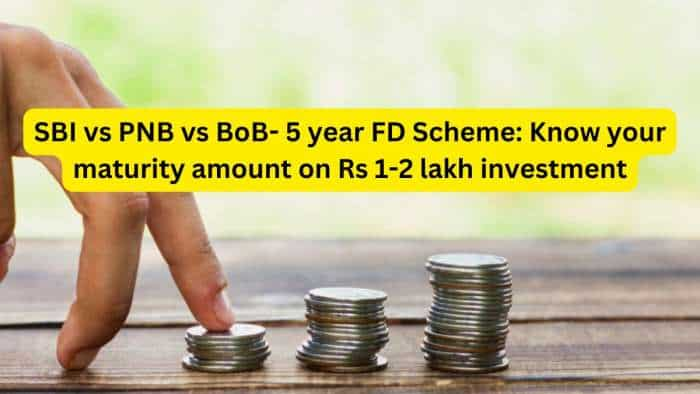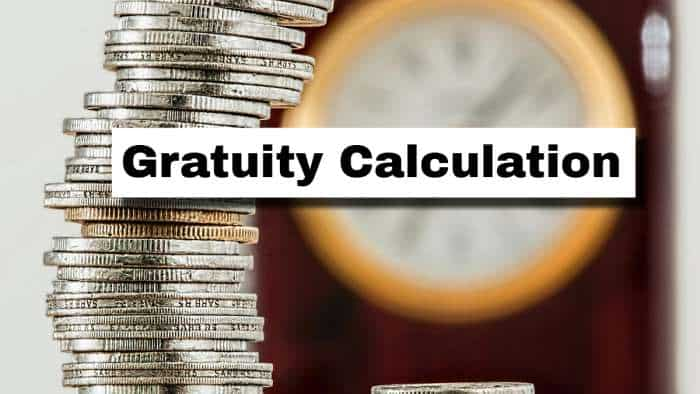How NPS investment can help you pay zero tax on Rs 10 lakh salary; examples included
Private and even unorganised sector employees can also invest in NPS. The scheme that was started in 2004 was limited to only central government employees, but later on, private sector employees were also included in it.
)
National Pension Scheme (NPS) is a long-term retirement scheme that not only helps you generate a sizeable fund but also helps you save tax to a great extent. You can take benefit of tax saving from NPS if you have opted for the old tax regime. Private and even unorganised sector employees can also invest in NPS. The scheme that was started in 2004 was limited to only central government employees, but later on, private sector employees were also included in it.
How can NPS be used as a tax saving tool?
Employees who contribute to NPS can receive the following tax benefits for their contributions:
- Under Section 80C of the Income Tax Act of 1961, NPS contributions of up to Rs 1.50 lakh are tax exempt.
- This is not the only tax benefit of NPS.
- Tier-1 NPS accountholders can get a further deduction of Rs 50,000 under Section 80CCD(1B).
- With this, the total NPS contributions of Rs 2 lakh become tax free.
- Now, the thing is that if your gross salary is Rs 10 lakh a year, can NPS contributions help you reduce your tax to zero.
- For that, only NPS contributions are not adequate. They will certainly help you a great deal, but you need to claim more deductions. Here's what you can do to bring your tax to zero.
ALSO READ | Power of Compounding: How Rs 5,000 SIP can help you build Rs 1.76 crore corpus; know with examples
HRA exemption
- The maximum House Rent Allowance (HRA) under Section 10 (13A) is calculated as follows:
- Actual HRA received from the employer.
- 50 per cent of the basic salary for employees living in metro cities and 40 per cent for those staying in non-metro cities.
- If your salary is Rs 10 lakh annually, you can easily claim an HRA of Rs 1 lakh.
- After Rs 2 lakh deductions on NPS and Rs 1 lakh claims on HRA, your taxable income will come down to Rs 7 lakh.
- You can claim a further deduction of Rs 1.25 lakh as reimbursement claims in the form of entertainment, transport, telephone, and stationery bills. You can include these in your salary after talking to your company's HR. Most of the offices have provisions for these reimbursement claims.
- With that deduction, your taxable salary will remain at Rs 5,75,000.
Deductions on health insurance premiums
Under Section 80(D), you can claim deductions of Rs. 25,000 (up to Rs. 50,000 if the insured is a senior person) on paid health insurance premiums. Deductions are allowed for the individual, spouse, children, and parents.
With the health insurance premium claim, the taxable income will be Rs 5,50,000.
Rebate under Section 87A
- You get a maximum rebate of up to Rs 12,500 under Section 87A of the Income-Tax Act for the financial year 2023-24.
- With that deduction, your taxable income remains Rs Rs 5,37,500.
- You also get a standard deduction of Rs 50,000 under Section 16 (1a).
- After that deduction, your taxable income will be Rs 4,87,500.
In the old tax regime, you need to pay a five per cent income tax on the income below Rs 5 lakh. But later on, you get a tax rebate, which means your income tax becomes zero.
This is how NPS contributions can help you significantly reduce your income tax to zero.
Now, let's take a look at expert's view on NPS investment.
"Investing in the National Pension System (NPS) presents a compelling opportunity for individuals earning a salary of Rs 10 lakh or more to achieve tax efficiency while securing their financial future," said Nikunj Saraf, vice-president, Choice Wealth - a mutual fund distribution firm.
He further explains, "The National Pension System (NPS) is a government-backed retirement savings scheme designed to empower individuals with a reliable financial cushion during their retirement years. One of its most significant advantages lies in the tax benefits it offers under Section 80CCD(1B) of the Income Tax Act, 1961."
"For those earning Rs 10 lakh or more annually, NPS investment becomes a powerful tool for tax optimisation. Section 80CCD(1B) allows for an additional deduction of up to Rs 50,000 over and above the Rs 1.5 lakh limit available under Section 80C. This means that individuals can claim a total deduction of up to Rs 2 lakh by wisely investing in NPS and other eligible avenues.
By strategically allocating funds to NPS, individuals can effectively lower their taxable income, leading to a reduced tax liability. This approach is particularly advantageous for high-income earners, as it not only fosters long-term financial security through retirement planning but also optimizes tax management.
Furthermore, NPS offers a diverse range of investment options, including equity, corporate bonds, and government securities. This flexibility enables investors to tailor their portfolio according to their risk tolerance and financial objectives, ensuring a well-balanced and growth-oriented strategy.
In essence, harnessing the potential of NPS investment serves as a dual-purpose solution, empowering individuals to build a robust retirement corpus while simultaneously enjoying significant tax savings. By leveraging the tax benefits of NPS intelligently, individuals an navigate towards a financially stable and tax-efficient future."
Get Latest Business News, Stock Market Updates and Videos; Check your tax outgo through Income Tax Calculator and save money through our Personal Finance coverage. Check Business Breaking News Live on Zee Business Twitter and Facebook. Subscribe on YouTube.
RECOMMENDED STORIES

SBI Senior Citizen FD Rates: Want to invest Rs 3,00,000 in SBI FD? You can get this much maturity amount in 1 year, 3 years, and 5 years

5 Stocks to Buy: Varun Beverages, ICICI Bank, Godrej Consumer, and 2 others for up 67% upside; check out long-term targets

EPS Pension Calculation: Rs 40,000 basic salary, 30 years of service, what will be your monthly EPS pension amount?

Retirement Planning: How one-time investment of Rs 11,00,000 can create a Rs 3,30,00,000 retirement corpus

SBI vs PNB vs BoB- 5 year FD Scheme: Which bank can give you higher return on Rs 1 lakh and Rs 2 lakh investment?

Monthly Pension Calculations: Is your basic pension Rs 25,000, Rs 45,000, or Rs 55,000? Know what can be your total pension as per latest DR rates

Income Tax Calculations: Is your annual salary Rs 6.75 lakh, Rs 9.25 lakh, Rs 14.50 lakh, or Rs 18.50 lakh? Know how much tax you will pay in old and new tax regimes
12:09 PM IST








 NPS Vatsalya: How can you generate Rs 100 crore retirement corpus for your child at 60 years of age?
NPS Vatsalya: How can you generate Rs 100 crore retirement corpus for your child at 60 years of age? Chitra Jayasimha appointed Chairperson of National Pension System Trust
Chitra Jayasimha appointed Chairperson of National Pension System Trust  How to open NPS Vatsalya account: 10 details you need to fill out to register your child now
How to open NPS Vatsalya account: 10 details you need to fill out to register your child now ICICI Bank launches NPS Vatsalya pension account for minors; key features, other details to kow
ICICI Bank launches NPS Vatsalya pension account for minors; key features, other details to kow Axis Bank joins hands with PFRDA to launch NPS Vatsalya scheme
Axis Bank joins hands with PFRDA to launch NPS Vatsalya scheme